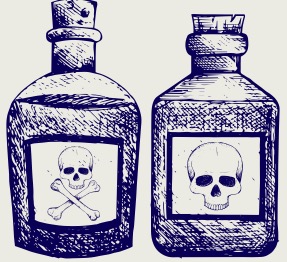 “Holding on to anger is like drinking poison, and expecting the other person to die.”
“Holding on to anger is like drinking poison, and expecting the other person to die.”
– Buddha
It’s an understatement to say there’s a great deal of turmoil in our world, and with it, a churn of judgments, accusations, and emotions. So this blog is dedicated to an emotion I believe is one of the most deadly: resentment. It is part of the repertoire of our human experience, yet it’s also a feeling that makes us uncomfortable. Most of us carry around a bit of resentment, those past wrongs we failed to right. I know I do. Yet I’m also crystal clear: resentment can be unleashed as a beneficial force, healing relationships at home and at work and enriching the fabric of our societies.
The question is: Are you up for that kind of transformation? It certainly isn’t for the feint of heart.
And it is thorny work. Why? Because the outward signs of resentment can be difficult to observe. Resentment is more of an inward harboring—a seductive buildup of antagonism lurking beneath the surface from:
- Longstanding animosities against a person, group, or part of society
- Feeling constantly mistreated by others
- Unresolved anger over events that happened in the past
- Inability to let go of hurts or wrongdoings and forgive one’s self and others
- Deep, unreconciled grief
- Unmet expectations of others (for commitments which may or may not have been agreed to)
Resentment has its roots in anger, a natural response when you perceive you’ve been violated. Anger degrades into full-blown resentment, however, when you don’t repair the violation. The big danger? Resentments can seethe for months—even years—unwittingly evolving into unconstructive patterns of seeing, responding, and living.
Among the moods we humans live in, resentment is a contraction, the opposite of appreciation, optimism, positivity, and like emotions that expand our sense of possibility and openness. With resentment comes the feeling of being stuck, as if held by the heel of your circumstances.
It’s no surprise then that resentment plays havoc at work. It creates a wedge of distrust between people, and as a result, impedes genuine collaboration. Instead of working through problems head on, it can get expressed sideways through:
- Venting, blaming, and other unskillful conversations
- Poor quality of work, when people spend time and energy fortifying the resentment rather than producing desired work results
- Absenteeism as well as presenteeism, where people are physically at work, but not fully present for work
People also show resentment ineptly through verbal attacks, attempts to prove others wrong, malicious compliance to rules and regulations, and other hostile strategies, all contributing to a toxic work environment.
Stewing in resentment, your health suffers as well. Your body records your resentments in every exquisite—and stress-producing—detail. Western medicine links resentment to disturbances in the body’s hormonal and immune systems, and Ayurveda, a system of well living born in India, sees the chronic fire of resentment as an imbalance that can leave you more susceptible to disease—mind, body, and spirit.
Simply put: when we resent, we are out of harmony with our selves and others. So what’s the good news? Underneath resentment is a strong inner will for change, and we can learn how to channel it well.
Bringing A Leadership Stance To Resentment
Resentment is part and parcel of human ventures of every type, from marriages and work-teams to business partnerships and negotiations between countries. It’s an intense emotion, and as a consequence, it’s also a powerful pathway for human learning, organizational effectiveness, and cultural development.
How do you bring a leadership stance to resentment? Here are three approaches to explore:
- Build enough trust and good intent with those who are resentful so that you can generate something new and positive together. In a resentment-fueled fray, it’s easy to forget: deeper relationships, better results, and higher wisdom are always possible to cultivate when the seeds of sincere motivation and trust are present.
- Put measures in place early on to stop resentments from setting down roots. At work and at home, establish a constructive emotional norm to work through the innate untidiness of relationships well before “untidy” turns into “unwell”. Don’t let this prevention strategy take a back seat to other activities. In the long run this is one of the most important ways you can spend your time.
- Reconcile resentments of your own. Identify specific resentments you hold, as well as the impact these have on your ability to thrive. Then take steps to reconnect to the more vibrant version of your self. (This beautiful piece on forgiveness or any of these twelve meditations might help.) And breathe, breathe, breathe. You are human like everyone else—you may be surprised at what you uncover when you walk down the path to clear up resentments that may be defining who you are. Be compassionate on this journey.
These resentment-clearing approaches are transformative. How? When we demonstrate the vulnerability, humility, and courage to use resentment for true growth not “gotcha”, everyone we touch is invited to the same—the opportunity to uplevel how mindfully we relate to each other. Not to mention, shifting from resentment to expansive moods such as appreciation and optimism releases a wellspring of positive human energy. It nourishes life-giving ways of being, as well as better approaches for coordinating action and accomplishing mutually-beneficial results.
The Buddha wisely claimed, “Holding on to anger is like drinking poison, and expecting the other person to die.” Now we know: resentment can become a potent medicine for good.
READ MORE
- What Executive Coaching Think About Building Thriving Leaders
- Drive Cultural Transformation With Wellbeing Innovation
- Is The Planet Ready For A Different Way Of Leading?
- Ready To Boost Leader Effectiveness And Wisdom? Try Mindfulness!
- Success Means Taking Care Of What Enables You To Thrive
- Leading From Authenticity: Boosting Your Energy, Impact, and Wellbeing
- Wellbeing Leadership: Where Are YOU On This Journey?
Shutterstock Image: 256428079





